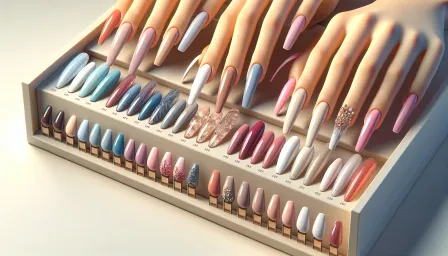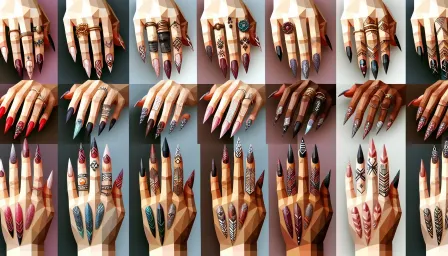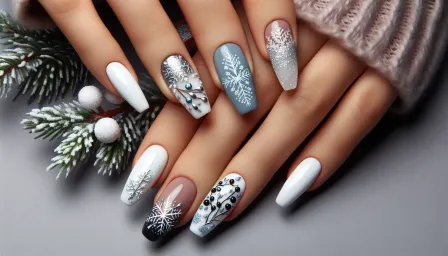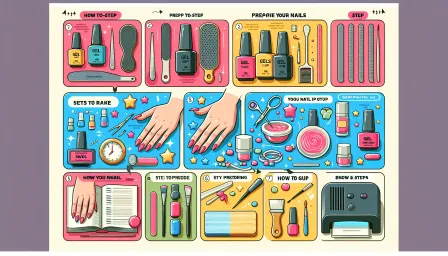Ultimate Guide to Nail Health and Self-Care Routines
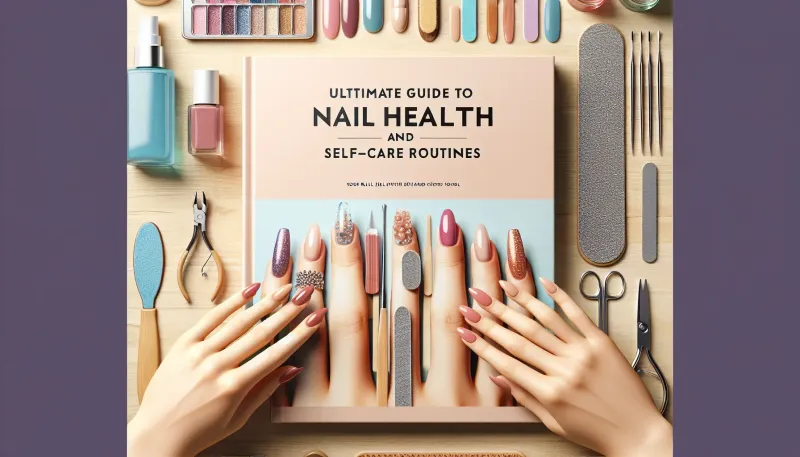
Read our ultimate guide to nail health and self-care routines to keep your nails looking healthy and beautiful. Discover tips, treatments, and routines to ensure optimal nail care.
Nail health is an often-overlooked aspect of personal grooming and overall wellness. Maintaining strong and healthy nails requires consistent care and attention. This guide will explore comprehensive self-care routines, common nail problems, and effective treatments to keep your nails in peak condition. Whether you're looking to improve your current nail care habits or seeking solutions to specific nail issues, this guide will provide actionable tips and insights.
The Importance of Nail Health
Nail health is a significant indicator of your overall well-being. Healthy nails are not only aesthetically pleasing but are also less susceptible to infections, breakage, and other common nail problems. Ignoring nail care can lead to a variety of issues such as fungal infections, brittle nails, and even more severe conditions that may require medical intervention.
Components of a Good Nail Care Routine
Developing a structured self-care routine for your nails can significantly enhance their health and appearance. Below are essential components of a comprehensive nail care routine.
1. Regular Cleansing
Keeping your nails clean is crucial. Regularly washing your hands and nails with mild soap helps to remove dirt, bacteria, and other contaminants that can lead to infections. Avoid using harsh soaps or chemical-laden hand sanitizers that can dry out your nails and skin.
2. Proper Trimming and Filing
Trim your nails regularly to prevent breakage and maintain a neat appearance. Use a high-quality nail clipper and avoid cutting too close to the skin to reduce the risk of ingrown nails. After trimming, use a nail file to smooth any rough edges.
3. Moisturizing
Just like your skin, your nails need moisture to stay healthy. Applying a nourishing nail oil or a hand cream that targets both hands and nails can help prevent dryness and brittleness. Focus on massaging the moisturizer into the nail bed and cuticle area for optimal results.
4. Cuticle Care
Healthy cuticles are vital for strong and healthy nails. Avoid cutting your cuticles, as this can lead to infections. Instead, gently push them back using a cuticle pusher and apply cuticle oil regularly to keep them hydrated.
5. Nail Protection
Protect your nails from damage by wearing gloves during activities that expose your hands to harsh chemicals, such as cleaning or gardening. Additionally, avoid using your nails as tools to open cans or scrape off labels, as this can lead to breakage and injury.
Common Nail Problems and Solutions
Brittle Nails
Brittle nails can break or split easily and are often a sign of dehydration or nutritional deficiencies. To strengthen brittle nails, ensure you are drinking plenty of water and consuming a diet rich in vitamins and minerals. Taking a biotin supplement may also help improve nail strength. Regularly applying a nail hardener can provide additional support.
Yellowing Nails
Yellowing nails can be caused by various factors, including frequent use of dark nail polish or underlying health conditions. To prevent yellowing, give your nails a break from polish and allow them to breathe. If discoloration persists, consult a healthcare professional, as it could be an indication of a fungal infection or other health issues.
Fungal Infections
Fungal infections are characterized by thickened, discolored, and sometimes painful nails. To prevent fungal infections, maintain good hygiene and keep your nails dry and clean. Over-the-counter antifungal treatments can be effective, but severe cases may require prescription medication from a doctor.
Splitting and Peeling
Splitting and peeling nails often result from exposure to water and harsh chemicals. To combat this, wear protective gloves when cleaning or washing dishes and use a gentle hand soap. Moisturize your nails regularly to keep them hydrated and avoid using nail polish removers that contain acetone.
Advanced Nail Care Tips
Professional Manicures
While at-home nail care is essential, professional manicures can provide a deeper level of maintenance and grooming. Opt for a reputable salon that follows strict hygiene standards to minimize the risk of infections. Professional treatments such as gel manicures can provide added strength and longevity to your nails.
Healthy Diet for Nails
Your diet plays a significant role in maintaining nail health. Foods rich in vitamins A, C, D, E, and B-complex, as well as minerals like zinc and iron, contribute to strong and healthy nails. Incorporate a variety of fruits, vegetables, nuts, and lean proteins into your diet to ensure you are getting the necessary nutrients.
Avoiding Harmful Chemicals
Many nail products contain harmful chemicals that can weaken and damage your nails over time. Look for nail polishes, removers, and treatments that are free from toxic ingredients like formaldehyde, toluene, and dibutyl phthalate (DBP). Opting for natural and organic products can be a safer alternative.
Hydration
Staying hydrated is crucial for overall health, including nail health. Drinking adequate amounts of water helps maintain moisture levels in your nails, preventing dryness and brittleness. Aim to drink at least eight glasses of water a day for optimal results.
Conclusion
Maintaining healthy nails requires consistent effort and attention to detail. By adopting a regular nail care routine, addressing common nail problems with effective treatments, and integrating advanced nail care tips into your lifestyle, you can achieve strong and beautiful nails. Remember, your nails are a reflection of your overall health, so prioritize their care just as you would any other aspect of your wellness. Incorporate these tips into your daily routine to enjoy the benefits of healthy, vibrant nails.





